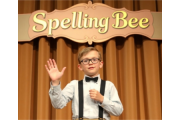‘I was happy because I had a good teacher. For three years. I learned Latin and Anglo-Saxon. Alcuin was a great man. He reformed the Church. He preserved the writing of pagan Roman authors, and he even invented cursive writing. He was a renaissance man long before the Renaissance…’
‘Do you wish you were still at university?’ asked Marian.
Anna sighed. ‘Yes. But my place is here.’ Her face clouded. ‘Besides, it is not practical. May I take your plate?’
The next morning over breakfast, the Quarringtons told Anna they would stay another two days. To her evident pleasure, they ecstatically confirmed her prediction: they did enjoy the day more than their trek through the five towns. They had cycled along the coastal path, the glittering blue sea crashing against the rocks beside them, meeting only local people. They passed through damp brightly-lit tunnels converted for pedestrians and cyclists from the former single-track railway line, to Bonassola, where they lay in the sun on the deserted beach until hunger beckoned them to a nearby bistro. To their delight, no-one there spoke English. Then it was on to Framura through yet another chilly tunnel. Here the village, on a plateau, was accessible only by a steep ascent on the other side of a railway siding. This was, they said, ‘too much for our elderly legs.’ They returned to discover Levanto at sunset, its narrow alleys off-limits to all vehicles but bicycles, its parks shaded by tall palms, its old- fashioned pastry shop where customer and shopkeeper suspended business for lengthy chats, and, perhaps less charmingly for the Quarringtons, its restaurants that opened in the evening when they felt like it.
‘But we have been talking too much of ourselves,’ said Marian. ‘Will you ever travel? Outside Italy, I mean.’
‘Well,’ Anna hesitated. ‘I was once offered the chance to study at York, in England… but it was not possible. I am needed here now. We are only truly free if we heed our consciences. As Alcuin said, “man thinks, God directs.” That is what I want to put on the missing plaque,’ and she gestured towards the statue of the Virgin.
Ralph raised his eyebrows in silent communion with his wife across the table.
Marian ignored him. ‘Would you like to teach?’
‘Once I did. But not now.’ Anna smiled. ‘Now I look for my mission in life. May I make up your room?’
Ashamed at her prying, Marian rose to follow her husband to the garden gate.
So taken was Marian with Anna’s quiet strength of character that she even fantasized about her suitability as a bride for her directionless eldest son Paul, also an underemployed liberal arts graduate. She even broached the question of Anna’s eligibility for a foreign student bursary to do graduate work in America. But Ralph was dismissive.
‘America no longer feels any compunction to fund what its movers and shakers feel are misfits and dreamers, Marian. Especially foreign ones. Like it or not, you and I are fossils. There is no call for what we do. You know that. We were lucky to get our livelihoods when we did. Anna’s generation is most unlucky.’
‘That’s terribly defeatist, Ralph. Besides, I was thinking about Anna, not us.’
‘But it’s the painful truth, nevertheless. Paul knows that. Barry Herkimer says he’s our last Dean of Arts. There will be no more.’
But Ralph had softened by the time it came to say goodbye to Anna. At breakfast, Marian was teary-eyed at the prospect of leaving, and Ralph, in embarrassment, spoke pompously to their gentle hostess of his own professional interest in Alcuin’s countryman, the Venerable Bede of Jarrow, not far from York, whose Ecclesiastical History, he reminded her, pre-dated Alcuin’s birth by only a few years. They parted with promises to write, and for a while there was an exchange of letters, but the correspondence, born of travellers’ enthusiasm, predictably sputtered out in the new year. Marian pined for a return to Italy, but as the years passed, the opportunity never arose again. There the matter might have ended had it not been for a hurried and characteristically misspelled e-mail from Ronnie, their youngest son and Marian’s favourite, ten years younger than Paul, then travelling in Europe. He had abandoned his two scruffy friends in Rome in order to see for himself what had so entranced his parents so many years before.
Hey, Mom, (the e-mail read) Checked out the Cinquie Terra you and dad raved about.
Saw all five in a day by train and even walked your walk between the first two. Quaint but crowded perhaps better in off-season. Funny thing, Casa Stephany still called that but is now a drop-in center for jobless like me (just kidding!). Its a busy place– times are tough here. I paid 1 euro fifty for soup and a sandwich in a great slab of crusty bread (pene or panne?) Pretty good value, huh? A nun called Anna (the same?) runs the place, but she’s no looker– sorry, Mom. She has a kid called Carlo. (Do nuns have kids?) The garden is beautiful, the statue to Mary is still there, on it it says ‘Man thinks, but God disposes’ or something like that… So don‘t think too much, dad. Feel instead, I guess. Sharon says hi. Off to Torino tomorrow, TTFN. Love, Ron.





